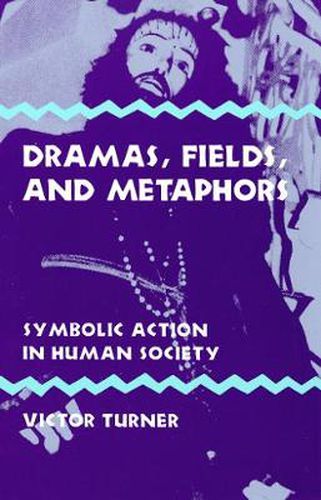Readings Newsletter
Become a Readings Member to make your shopping experience even easier.
Sign in or sign up for free!
You’re not far away from qualifying for FREE standard shipping within Australia
You’ve qualified for FREE standard shipping within Australia
The cart is loading…






In this book, Victor Turner is concerned with various kinds of social actions and how they relate to, and come to acquire meaning through, metaphors and paradigms in their actors’ minds; how in certain circumstances new forms, new metaphors, new paradigms are generated. To describe and clarify these processes, he ranges widely in history and geography: from ancient society through the medieval period to modern revolutions, and over India, Africa, Europe, China, and Meso-America.
Two chapters, which illustrate religious paradigms and political action, explore in detail the confrontation between Henry II and Thomas Becket and between Hidalgo, the Mexican liberator, and his former friends. Other essays deal with long-term religious processes, such as the Christian pilgrimage in Europe and the emergence of anti-caste movements in India. Finally, he directs his attention to other social phenomena such as transitional and marginal groups, hippies, and dissident religious sects, showing that in the very process of dying they give rise to new forms of social structure or revitalized versions of the old order.
$9.00 standard shipping within Australia
FREE standard shipping within Australia for orders over $100.00
Express & International shipping calculated at checkout
In this book, Victor Turner is concerned with various kinds of social actions and how they relate to, and come to acquire meaning through, metaphors and paradigms in their actors’ minds; how in certain circumstances new forms, new metaphors, new paradigms are generated. To describe and clarify these processes, he ranges widely in history and geography: from ancient society through the medieval period to modern revolutions, and over India, Africa, Europe, China, and Meso-America.
Two chapters, which illustrate religious paradigms and political action, explore in detail the confrontation between Henry II and Thomas Becket and between Hidalgo, the Mexican liberator, and his former friends. Other essays deal with long-term religious processes, such as the Christian pilgrimage in Europe and the emergence of anti-caste movements in India. Finally, he directs his attention to other social phenomena such as transitional and marginal groups, hippies, and dissident religious sects, showing that in the very process of dying they give rise to new forms of social structure or revitalized versions of the old order.